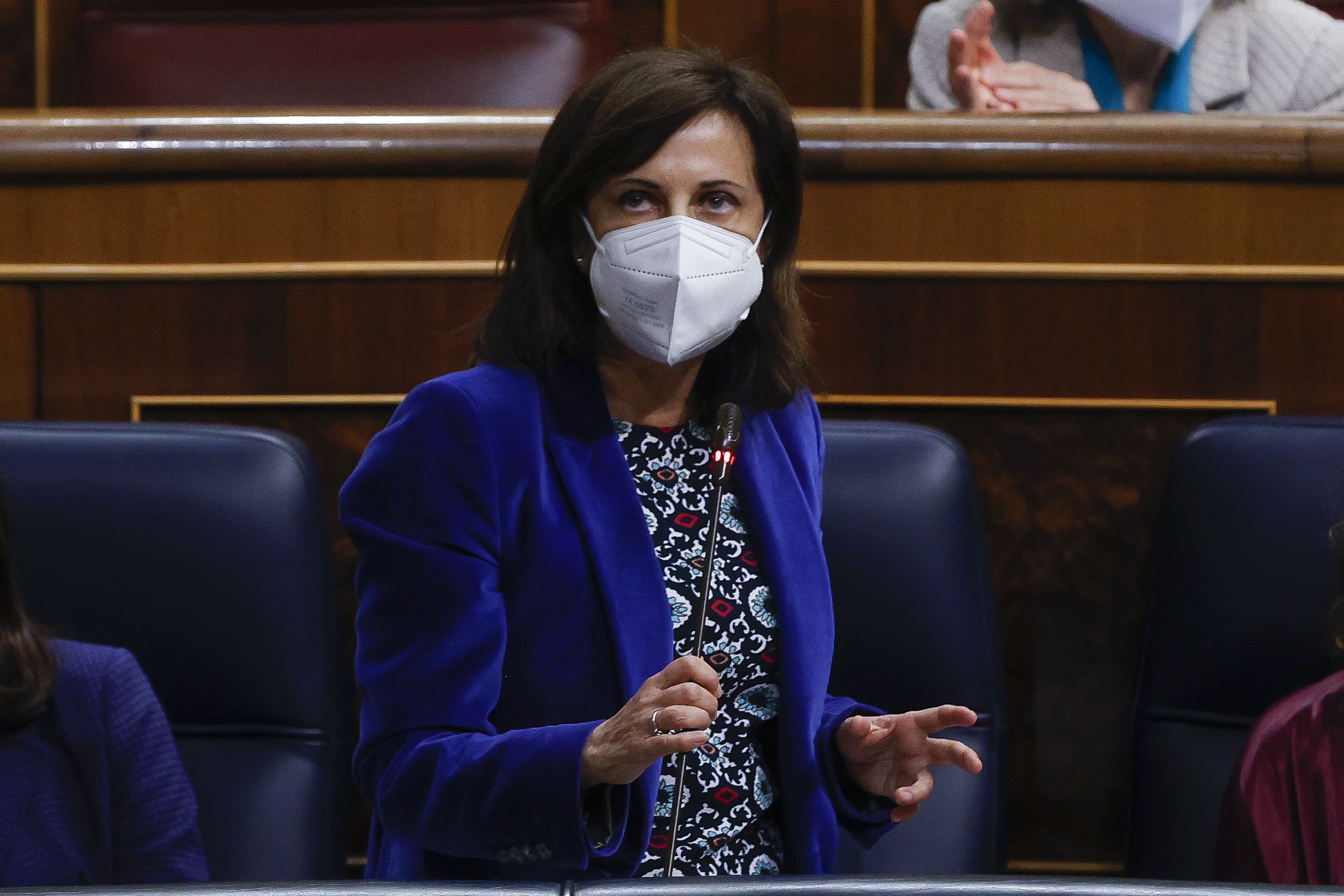Margarita Robles put the icing on the cake this Wednesday. After a week of repeatedly defending the work of Spain's National Intelligence Centre (CNI), always "complying with the law", today the Socialist defence minister, responsible for the activities of the secret services, went as far as to justify political espionage (see the subtitled video below). She did so in the parliamentary question session in the Congress of Deputies, where she spelt it out completely in a reply to the pro-independence CUP deputy Mireia Vehí: "What does a state have to do when someone violates the constitution? What does a government do when someone declares independence? Or encourages public disorder? And when someone is having relations with those who have invaded Russia?" Margarita Robles maintained the same defiant tone against the independence movement and she did not stop there: "What happens when websites like the SEPE employment service or ministers' mobile phones are hacked? You are now victims because it suits you." After these controversial words, the defence ministry's team assured that the Socialist leader "did not justify anything" but simply "confirmed" everything that happened in Catalonia in 2017.
Today's question session was indeed marked by the CatalanGate espionage scandal, involving massive spying against pro-independence leaders by the Spanish state. But if anyone thought it could be a chance to rebuilding parliamentary bridges on the matter, they were, in fact, blown up. Asked by ERC's Gabriel Rufián, the Spanish prime minister kept his response in a low tone, not assuming any responsibilities and committing himself, once again, to "transparency" and dialogue with the Catalan government. It was the first time that Pedro Sánchez had spoken at all about the crisis in ten days. However, it was his defence minister who ended up losing her cool in the face of the five questions asked of her.
In her response, Socialist minister Robles showed the same defiant tone she had adopted a day before in the Senate's question session, when she suggested that the pro-independence parties should pursue the question in court action, while warning of the "consequences of a false complaint". And today she also challenged the Catalan parties, in this case over the official secrets committee, hypothesising over a future appearance of the CNI director at the committee to present the documentation on this espionage matter: "Perhaps some who are giving lessons now will have to shut up."
During the question session, Junts spokesperson Míriam Nogueras urged her to investigate. "If you don't, you are all accomplices (...) By action or omission, Mr Pedro Sánchez is the person with final responsibility for espionage against the independence movement." Nogueras said the CNI was "just the tip of the iceberg". For her part, the CUP's MP Mireia Vehí asserted that "this is not a state that can be called democratic" and denounced that "when it comes to safeguarding the unity of Spain, anything is allowed". And Aitor Esteban (PNB) asked her "what has become of that progressive judge", referring to the minister's judicial background, and he denounced that she was guided by "parameters more worthy of Moscow than Madrid". Only Ciudadanos leader Inés Arrimadas closed ranks with the spies and not with those spied on.
"She's given herself away"
Margarita Robles' words did not go unnoticed and the reactions were almost instantaneous. Míriam Nogueras spoke out to reporters in the corridors of the Congress, affirming that the minister "has given herself away and broken the silence", and the Junts MP called for an investigation into the role that everyone has played in the affair. For his part, ERC's Gabriel Rufián "invited Mrs Robles to apply for entry into the PP." He recalled that two years ago she was already "the candidate of the grand coalition" and that "she is simply trying to go against this government" with "stupidity".

